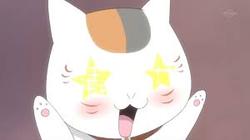Hai guys.. I want to ask how and when I can use for these words: 夜(よる=night,evening) and… - Feed Post by Mika93
Hai guys.. I want to ask how and when I can use for these words: 夜(よる=night,evening) and 晩(バン=nightfall,night). What the difference between both of these words. And if I want to say 'I have a dinner tonight', so should I use 今夜(こんや) or 今晩(こんばん) for word of 'tonight'. Thank you ^_^.
posted by Mika93 April 26, 2016 at 6:54pm
Comments 23
 Huh. Nice question. Now I'm also quite curious with the usage between "yoru" and "konban". Hopefully someone else can help.April 26, 2016 at 10:07pm
Huh. Nice question. Now I'm also quite curious with the usage between "yoru" and "konban". Hopefully someone else can help.April 26, 2016 at 10:07pm nice question chibiApril 26, 2016 at 11:13pm
nice question chibiApril 26, 2016 at 11:13pm I always use konya for tonight and bangohan for dinner. I also use Yuu(go)han for an evening meal. Yoru for tomorrow night etc.April 26, 2016 at 11:51pm
I always use konya for tonight and bangohan for dinner. I also use Yuu(go)han for an evening meal. Yoru for tomorrow night etc.April 26, 2016 at 11:51pm Maiban for every nightApril 26, 2016 at 11:55pm
Maiban for every nightApril 26, 2016 at 11:55pm https://answers.yahoo.com/question/index?qid=20100404224342AAR7yTIApril 27, 2016 at 12:07am
https://answers.yahoo.com/question/index?qid=20100404224342AAR7yTIApril 27, 2016 at 12:07am

 https://www.bing.com/translator/?ref=TThis&text=evening%20meal&from=&to=ja
https://www.bing.com/translator/?ref=TThis&text=evening%20meal&from=&to=ja
April 27, 2016 at 12:26am Google Translate has been helpful to me because it has Romaji pronunciation.
Google Translate has been helpful to me because it has Romaji pronunciation.
April 27, 2016 at 12:49am I have a dinner tonight.
I have a dinner tonight.
Watashi wa yūshoku no kon'ya o motte imasu.
私は夕食の今夜を持っています。April 27, 2016 at 12:53am Watashi wa yūshoku no kon'ya o motte imasu.
Watashi wa yūshoku no kon'ya o motte imasu.
I have a dinner tonight.
私は夕食の今夜を持っています。 I use Google Translate because while not exact I learn new words. I also searched Answers.com and Yahoo to get differences. It seems that "ban" is later at night while "yoru" is earlier. I use konya for this evening and konban for tonight. Maiban for every night and Yorumai for every evening.April 27, 2016 at 1:08am Hey, forgive me if I'm wrong, but the translation of:
Hey, forgive me if I'm wrong, but the translation of:
"Watashi wa yuushoku no kon'ya o motte imasu" for "I have a dinner tonight" might be incorrect.
Motte (持って) is a conjugation of Mochimasu (持ちます) in the -te form. Mochimasu means "have" in terms of holding an item. I.e. "I have the house key" in which the house keys is in my holding possession.
Also, "yuushoku (夕食) = dinner" and "kon'ya (今夜) = tonight" but using both in a single sentence of "yuushoku no kon'ya" is a bit weird. Because from my understanding, the grammar "no" means possession be it "items or descriptive". For example:
Possessions of item: "Watashi no kuruma" = "car of mine" or "my car".
Possessions of descriptive: "Aoi no sora" = "Skies of blue" or "blue sky".
So using "Yuushoku no kon'ya" = "Dinner of tonight" or "tonight's dinner".
If to say "I have a dinner tonight", I'd think it be suffice to say:
"(Watashi wa) Kon'ya yuushoku wo imasu"
"Watashi wa" is quite redundant to use in a sentence since you are saying the sentence therefore the other party will already know that you are speaking on your behalf. "Kon'ya" = tonight, "yuushoku wo imasu" = I have dinner.
Basically the whole sentence will be understood as:
"Tonight, I have a dinner."
I'm still learning and quite struggling with the Japanese grammar and the conjugation, but it will help me alot if someone else were to check on my explanation and understanding of the language and correct any of my mistakes. Thanks guys.April 27, 2016 at 1:31am Oops, ban is evening while yoru seems to focus more on later at night.
Oops, ban is evening while yoru seems to focus more on later at night.
April 27, 2016 at 1:32am I believe that imasu means to be.
I believe that imasu means to be.
April 27, 2016 at 3:51am ............yuushoku o 摂る (otoro)April 27, 2016 at 4:39am
............yuushoku o 摂る (otoro)April 27, 2016 at 4:39am 今夜は、夕食を食べます。
今夜は、夕食を食べます。
Tonight, I will have dinner.April 27, 2016 at 6:33am Finally managed to find my post from a few months ago where I replied to a related, similar question to yours:
Finally managed to find my post from a few months ago where I replied to a related, similar question to yours:
http://japaneseclass.jp/feeds/comment/7762
Hopefully reading that might give some clues, but to sum up the main point of what I was saying:
・夜間 "やかん" (nighttime) is the opposite of 昼間 "ひるま" (daytime).
・晩 "ばん" (evening) is the counterpart to 朝 "あさ" (morning).
・夕 "ゆう" = sunset
@Jackbosma, "otoro"? What's tuna sashimi got to do with this? :PApril 27, 2016 at 6:51am @mog86uk toro-to have (lunch) etc. It's in the site dictionary!April 27, 2016 at 7:15am
@mog86uk toro-to have (lunch) etc. It's in the site dictionary!April 27, 2016 at 7:15am
 @Jackbosma, I was trying to hint about the romaji spelling you used, which you've now writen as "toro" a second time... I don't know why romaji is even being used in the comments anyway, since Mika has been writing in kana... XDApril 27, 2016 at 8:13am
@Jackbosma, I was trying to hint about the romaji spelling you used, which you've now writen as "toro" a second time... I don't know why romaji is even being used in the comments anyway, since Mika has been writing in kana... XDApril 27, 2016 at 8:13am @mog86uk So basically, "yoru", "ban" and "yuu" are describing evening/night at specific time but they're usually used interchangeably as though there's no difference between each other, right?
@mog86uk So basically, "yoru", "ban" and "yuu" are describing evening/night at specific time but they're usually used interchangeably as though there's no difference between each other, right?
Meaning I can treat all three words as evening/night time event.April 27, 2016 at 10:47am @JACKBOSMA @ItikKing and @mog86uk Thank you for helping me. I think I can understand it a little. Let me summarize it. Correct me if I wrong.
@JACKBOSMA @ItikKing and @mog86uk Thank you for helping me. I think I can understand it a little. Let me summarize it. Correct me if I wrong.
- 晩(ばん) is evening.
- 夕(ゆう) is evening(sunset).
- 夜(よる) is night.
- For the word of 'tonight', it is better to use 今夜(こんや) than 今晩(こんばん).
Well..this is not like summary at all. I just repeat what all of you had been said...XDD.April 27, 2016 at 7:09pm Send me the sentence translation!
Send me the sentence translation!
April 27, 2016 at 10:27pm
